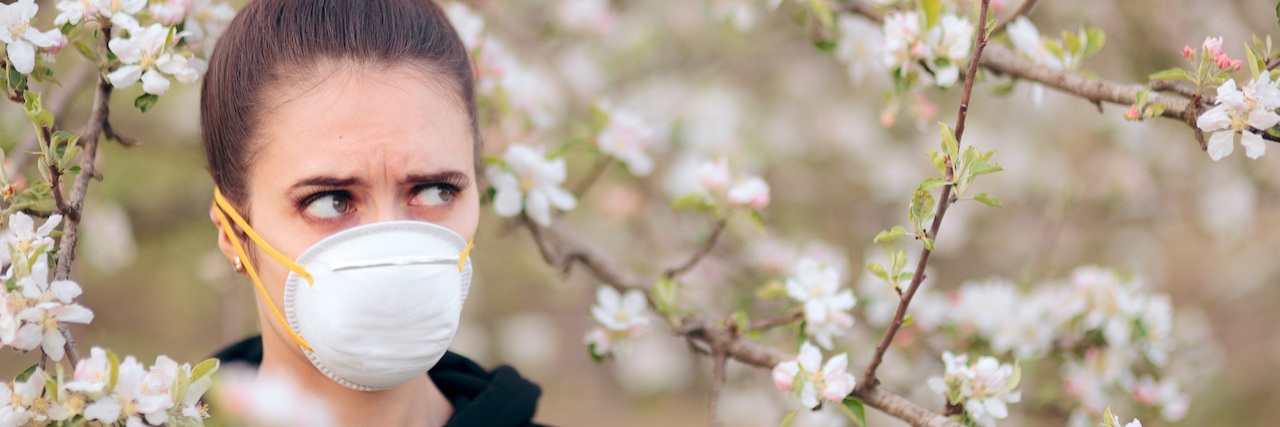One of the great hopes as many areas of the world head into spring is that the warmer temperatures will help slow the spread of COVID-19, the way that other viruses like the flu recede with an increase in humidity. It makes sense to hope for any relief from the virus to slow the spread — especially if it means it will be safe to leave our houses again sooner.
Unfortunately, we don’t really know how COVID-19 is affected by the weather yet. Preliminary evidence points to slower SARS-CoV2 transmission in warmer weather, but experts seem to agree that we can’t count on warmer or more humid weather to significantly stall COVID-19, at least not yet.
Will COVID-19 Go Away With Warmer Weather?
COVID-19 is a respiratory virus that causes symptoms such as fever, coughing and shortness of breath. Though it emerged during cooler months in the United States, most experts agree it’s too early to tell how SARS-CoV2 will respond to warmer and more humid weather. A growing number of studies, most of which have yet to be peer-reviewed, seem to hint that COVID-19 may be slowed by warmer weather and higher humidity.
For example, one paper suggested the fastest rate of COVID-19 community spread occurred in areas where the temperature was between 37 to 63 degrees Fahrenheit with lower humidity. The researchers in this paper theorized that may be why COVID-19 grew so much faster in New York and Washington compared to Texas and Florida, which are warmer this time of year. Other respiratory illnesses, like the flu, also transmit best in drier, less humid weather, so there’s reason to believe SARS-CoV2 may act similarly.
However, COVID-19 is a new virus to humans, making it easy for the virus to spread despite the weather. That’s why experts warn that warmer temperatures or humidity won’t be enough to slow the virus alone. Other measures, such as social distancing, are still essential.
Is COVID-19 Seasonal?
Preliminary evidence suggests that COVID-19 will be a seasonal virus, meaning it waxes and wanes as the seasons change just like the common cold or the flu. However, Anthony S. Fauci, the director of the National Institute of Allergy and Infectious Diseases (NIAID), cautioned that at first, COVID-19’s changes with the seasons means we’ll need to be prepared for another spike in cases. While we wait for a vaccine or more effective treatments, we may need to be prepared to take social distancing measures again in the fall.
“What we’re starting to see now in the Southern Hemisphere, in southern Africa and in the southern hemisphere countries, is that we’re having cases that are appearing as they go into their winter season,” Fauci said during a press conference. “And if, in fact, they have a substantial outbreak, it will be inevitable that we need to be prepared, that we’ll get a cycle around the second time.”
Dr. Fauci said during the press briefing today that there is mounting evidence that the #coronavirus could be a seasonal/cyclical virus that will make a resurgence in the winter.
We need to be prepared for that, he says. pic.twitter.com/E6okWHUgo0
— Jason Howerton (@jason_howerton) March 25, 2020
The Takeaway
There’s a chance that warmer or more humid weather may help slow the spread of COVID-19, but we can’t count on it to be a solution. Behaviors like social distancing and regular hand-washing are still needed to slow the spread of COVID-19 since nobody has immunity to it. Over time, however, it’s likely COVID-19 may follow a pattern closer to other common respiratory illnesses like the common cold and flu as humans build up their immunity.
“Even seasonal infections can happen ‘out of season’ when they are new,” Marc Lipsitch, DPhil, professor of epidemiology and director, Center for Communicable Disease Dynamics, Harvard T.H. Chan School of Public Health, wrote. He added:
New viruses have a temporary but important advantage — few or no individuals in the population are immune to them. Old viruses, which have been in the population for longer, operate on a thinner margin — most individuals are immune, and they have to make do with transmitting among the few who aren’t. In simple terms, viruses that have been around for a long time can make a living — spread through the population — only when the conditions are the most favorable, in this case in winter.
Concerned about coronavirus? Stay informed with these articles:
Header image via nicoletaionescu/Getty Images

